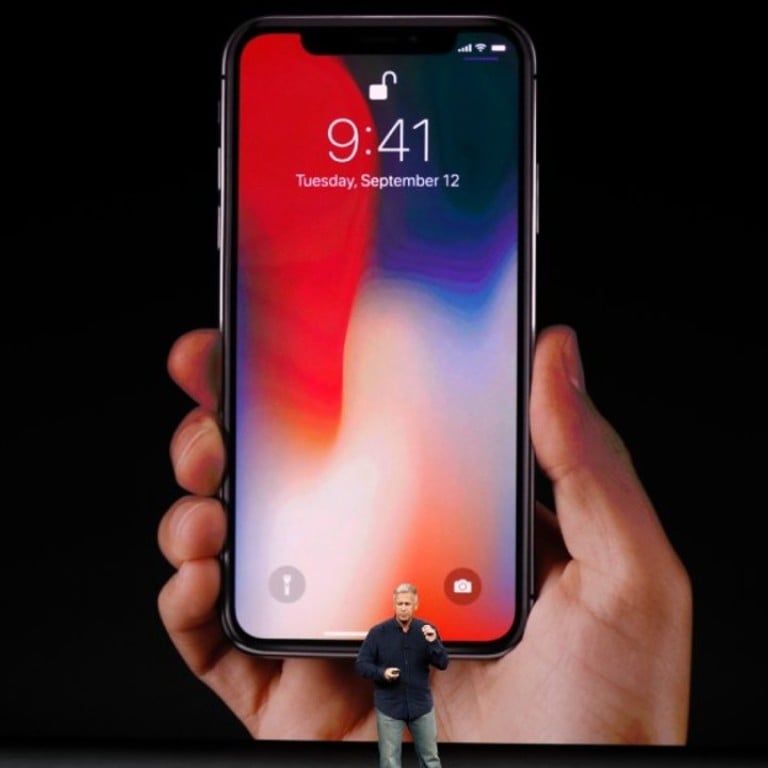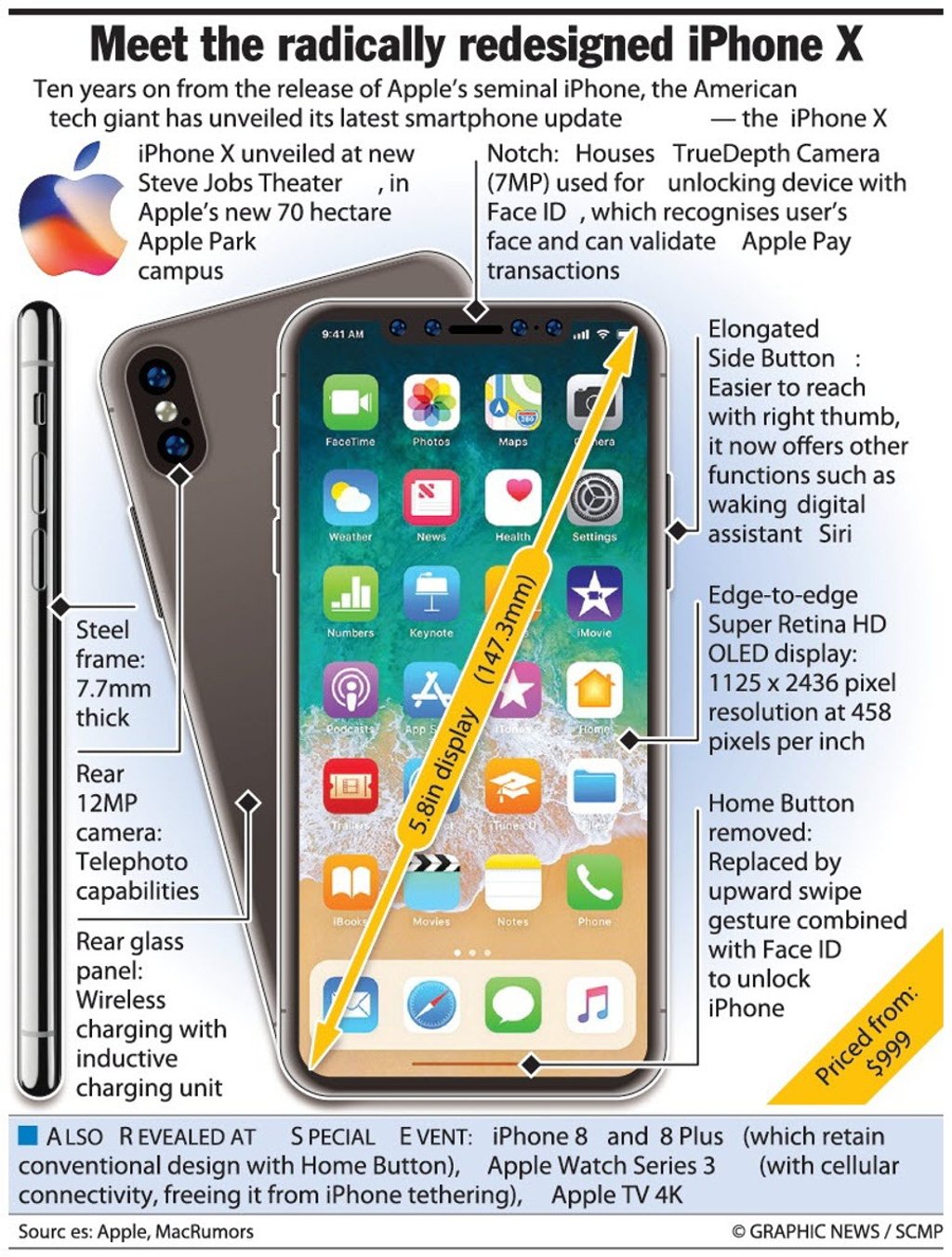Why Apple sees iPhone X as a ‘platform for artificial intelligence’

Jeff Williams, company’s chief operating officer, hails ‘neural engines’ in its iPhones and watches before pre-orders of iPhone X embedded with AI features
Apple sees its mobile devices as a major platform for artificial intelligence in the future, the company’s chief operating officer Jeff Williams said on Monday.
Later this week, Apple is set to begin taking pre-orders for its new smartphone, the iPhone X – which starts at US$$999 and uses artificial intelligence (AI) features embedded in the company’s latest A11 chips.
We’re at an inflection point, with on-device computing, coupled with the potential of AI, to really change the world
The phone promises new facial recognition features such as Face ID, which uses a mathematical model of a person’s face to allow the user to sign on to their phones or pay for goods with a steady glance at their phones.
“We think that the frameworks that we’ve got, the ‘neural engines’ we’ve put in the phone, in the watch … we do view that as a huge piece of the future,” Williams said.

Williams was speaking at the 30th anniversary celebrations of top chip manufacturer Taiwan Semiconductor Manufacturing Company (TSMC) in Taipei, which was attended by global technology executives.
He said technological innovations, especially involving the cloud and on-device processing, would improve life without sacrificing privacy or security.
“I think we’re at an inflection point, with on-device computing, coupled with the potential of AI, to really change the world.”
He said AI could be used to change the way health care was delivered – an industry he saw as “ripe” for change.